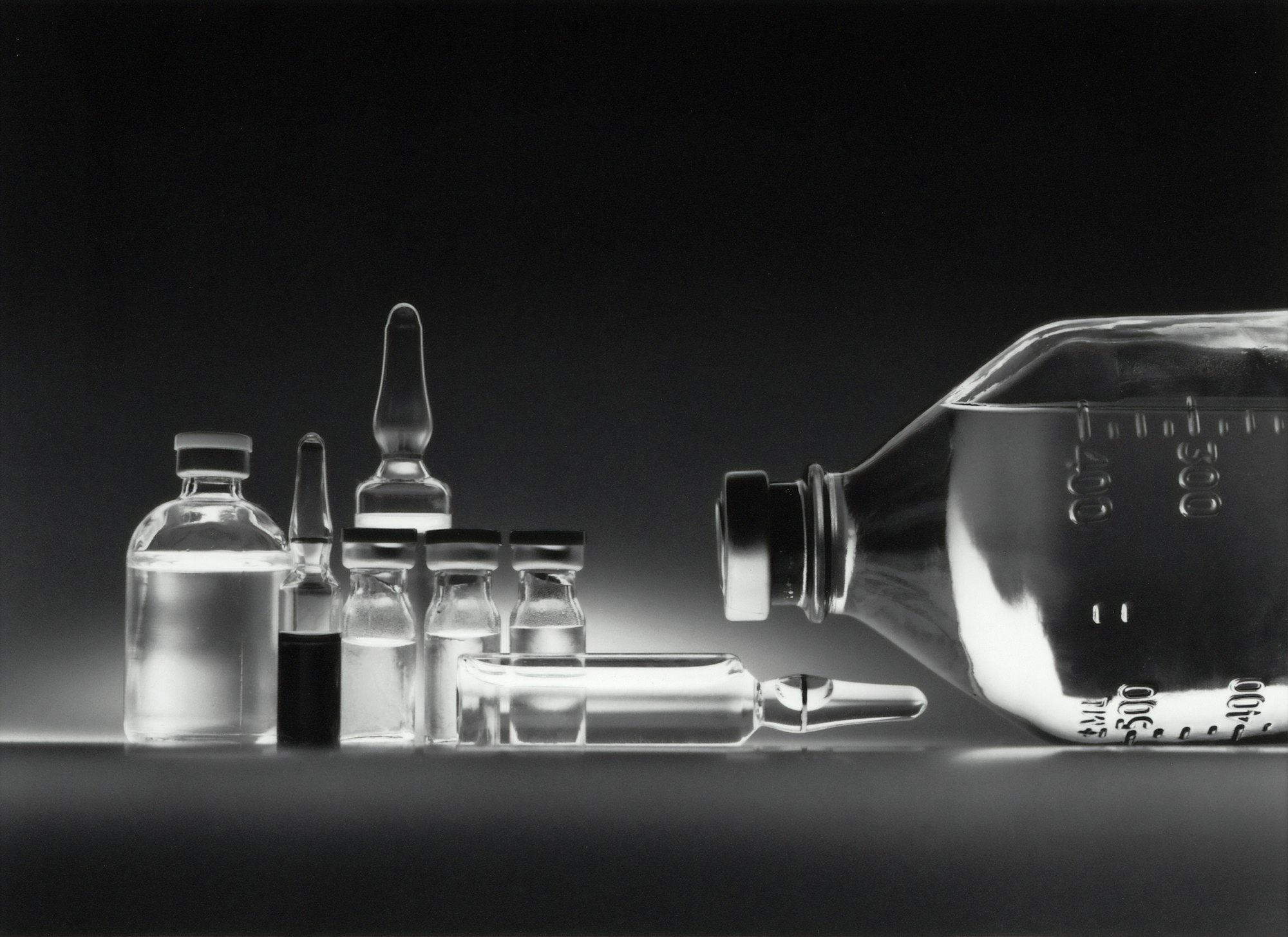"I made a brash decision as a teenager, (as a lot of teenagers do) trying to find confidence and happiness, except now the rest of my life will be negatively affected." Keira Bell, in her witness statement
"The reality is that no child can adequately comprehend the consequences of embarking on a path that will almost certainly lead to cross-sex hormones and surgery." The Times, leader 2nd December 2020
Keira Bell (23) from Cambridge was given hormones by the NHS as a teenager to change her gender. She undertook a legal challenge to the NHS's Tavistock clinic in London last month to stop children receiving the same treatment unless ordered by a court. She says that she didn't understand the nature of the treatment at the time.
This is the same service which Irish children have been referred to since 2012.
Kiera Bell's legal action was considered a test case for the treatment for children in England which has seen a huge increase in demand in recent years.
Writing last year the UK group Transgender Trend reported that
"In 2009/10 there were 32 girls and 40 boys referred to Tavistock GIDS. In 2011/12 the sex ratio reversed and the gap between boys and girls has continued to widen year on year ever since. The total number of referrals for 2018/19 in England alone is 624 boys and 1,740 girls. In less than a decade there has been a 1,460% increase in referrals of boys and a staggering 5,337% increase in girls."
Considerable adverse media publicity
There has been considerable media publicity about the Tavistock and Portman NHS Trust's Gender Identity Development Service (GIDS) both in the UK and here.
Marcus Evans, one of the governors of the Tavistock and Portman NHS Foundation Trust resigned, after accusing its management of having an “overvalued belief in” the expertise of its service “which is used to dismiss challenge and examination”. The Tavistock GIDS also suffered from 35 resignations in three years with warnings of over-diagnoses of gender dysphoria.
Figures involved somewhat confusing
According to figures supplied by the Tavistock, the numbers of children referred from here has also risen rapidly from none prior to 2012 to 42 last year, 34 being girls. Twenty-one of the children were under 15 at the time of referral.
The figures show that not only are the numbers of children being referred from Ireland getting younger but that the over representation of girls in these referrals more than reverses the trend in adults among whom the majority of transitioners were male according to a retrospective study carried out here between 2005 and 2014.
In February it was reported that some 291 children had used the service based at Crumlin children's hospital which is funded by the Treatment Abroad Scheme and which is led by 2 clinicians from the Tavistock who travel to Ireland.
In August the Irish Mirror reported that a total of 78 Irish children "have been sent by the HSE to England for assessment over confusion about their gender identity over the past three years."
"Children's Health Ireland (CHI) at Crumlin say they are currently treating less than 20 patients at their Gender Endocrinology Service - and some are on puberty-blocking hormones."
Over-representation of girls in the figures - why is this?

Has any research yet been done to investigate this sudden increase in Irish girls feeling gender distress? We know that this phenomenon is being seen in other countries with social contagion suggested as a contributing factor.
Keira Bell herself explains that she was a tomboy as a child. When asked how strongly she felt the need to change her gender identity, she replied that it gradually built up as she found out more about transitioning online.
Psychiatrist Dr Stephen Levine says:
‘It is exceedingly rare to encounter a trans teenager who has not developed ‘friends’ through the Internet, where they are often counselled that they are trans and directed to numerous websites that help them to stabilize their identities.”
Most children do not remain gender dysphoric after puberty
De Vries and Cohen-Kettenis say that “Follow-up studies have demonstrated that only a small proportion of gender dysphoric children become transsexual at a later age, that a much larger proportion have a homosexual sexual orientation without any gender dysphoria, and that a small proportion of these children develop into heterosexual adults.”
Ten follow-up studies of children found that “The conclusion from these studies is that childhood GD is strongly associated with a lesbian, gay, or bisexual outcome and that for the majority of the children (85.2%; 270 out of 317) the gender dysphoric feelings remitted around or after puberty.”
Detransitioners
We know that there have been adults in this country who have transitioned and regretted it. Consultant endocrinologist Prof Donal O'Shea is reported as saying two years ago that three transgender people had died by suicide in the previous five years, two had had surgery and one was on hormone therapy. Prof O'Shea said this country has a high rate of adults who regret treatment.
“The experience of those who suffer from post-op regret and those who die by suicide highlights the need for resourcing and ongoing psychological and psychiatric support, and the need for input through each stage,” he said.
A growing number of detransitioners are coming forward to speak about their experiences despite the fact that they are discouraged from speaking out and “have been instructed by patient advocates not to report this because it would be bad for the wider community.”
The stories of detransitioned girls and women are often very similar; they say that what they needed was help to accept themselves as girls or women.
However James Caspian, a psychotherapist who specialises in therapy for transgender people was refused permission to study cases of detransitioners by Bath Spa university, which said that it risked generating controversy on social media sites.
An "unregulated live experiment on children"

Professor Carl Heneghan, director of the Centre of Evidence-based Medicine at the University of Oxford, has said that:
“Given paucity of evidence, the off-label use of drugs [for outcomes not covered by the medicine’s licence] in gender dysphoria treatment largely means an unregulated live experiment on children.”
BBC's Newsnight reported earlier this summer that leaked documents revealed that staff concerns about patient welfare were shut down. There were also worries that some patients were referred onto a gender transitioning pathway too quickly.
"Let's pray that I am wrong because if I am not wrong, very many vulnerable children have been very poorly treated and will be left with, potentially, a lifetime of damage here," one is quoted as saying.
Doctors already worried about the service provided here
Earlier this year it was reported that doctors here are already unhappy with the service being provided to Irish children through flying in clinicians from the Tavistock to Crumlin children's hospital. The doctors felt that some children had been started on hormone treatment when they did not appear to be suitable.
Puberty blockers guidance to be changed in Ireland
The Sunday Business Post reported in August that puberty blockers will no longer be considered "fully reversible" following the NHS change in guidance and that this change was prompted by another court case initiated by a former psychiatric nurse at the Tavistock, Ms Susan Evans. The paper reported that TENI, the Transgender Equality Network Ireland, "is working with" the Irish College of General Practitioners (ICGP) to "review the advice given to doctors". It was reported that it's expected to be published before the end of this year.
Puberty blockers are known to affect bone and possibly brain development, putting users at risk of developing osteoporosis and are associated with reductions in expected IQ.
“Long-term effects are not known, but infertility appears inevitable when cross-sex hormones are introduced shortly after puberty blockers. Loss of sexual maturation will also be associated with lack of adult sexual function, although it is unlikely that a pre-pubertal child can truly understand this side-effect at the time of consent."
Judgement in the High Court 1st December 2020:
For Puberty Blockers (PBs) and Cross Sex Hormones (CSH) the judgement notes that
"No precise numbers are available from GIDS (as to the percentage of patients who proceed from PBs to CSH)."
However the court did have the evidence of Dr de Vries who
"leads the Centre of Expertise on Gender Dysphoria at the Amsterdam University Medical Centre in the Netherlands (CEGD). This is the institution which has led the way in the use of PBs for young people in the Netherlands; and is the sole source of published peer reviewed data (in respect of the treatment we are considering) produced to the court. She says that of the adolescents who started puberty suppression, only 1.9 per cent stopped the treatment and did not proceed to CSH."
The judgement noted that:
"In short, the treatment may be supporting the persistence of GD in circumstances in which it is at least possible that without that treatment, the GD would resolve itself." [Gender dysphoria]
In its conclusions the High Court said: "..it is, in our view, properly described as experimental treatment."
The starting point is to consider the nature of the treatment proposed. The administration of PBs to people going through puberty is a very unusual treatment for the following reasons. Firstly, there is real uncertainty over the short and long-term consequences of the treatment with very limited evidence as to its efficacy, or indeed quite what it is seeking to achieve. This means it is, in our view, properly described as experimental treatment. Secondly, there is a lack of clarity over the purpose of the treatment: in particular, whether it provides a “pause to think” in a “hormone neutral” state or is a treatment to limit the effects of puberty, and thus the need for greater surgical and chemical intervention later, as referred to in the Health Research Authority report. Thirdly, the consequences of the treatment are highly complex and potentially lifelong and life changing in the most fundamental way imaginable. The treatment goes to the heart of an individual’s identity, and is thus, quite possibly, unique as a medical treatment.
In addition the judgement said:
"In other cases, medical treatment is used to remedy, or alleviate the symptoms of, a diagnosed physical or mental condition, and the effects of that treatment are direct and usually apparent. The position in relation to puberty blockers would not seem to reflect that description."
"The evidence shows that the vast majority of children who take PBs move on to take cross-sex hormones, that Stages 1 and 2 are two stages of one clinical pathway and once on that pathway it is extremely rare for a child to get off it."
"Indeed, the statistical correlation between the use of puberty blockers and cross-sex hormones supports the case that it is appropriate to view PBs as a stepping stone to cross-sex hormones."
"There is no age appropriate way to explain to many of these children what losing their fertility or full sexual function may mean to them in later years."
"In principle, a young person’s autonomy should be protected and supported; however, it is the role of the court to protect children, and particularly a vulnerable child’s best interests. The decisions in respect of PBs have lifelong and life-changing consequences for the children."
Transgender Trend, a UK group for those concerned about the social and medical "transition" of children, the introduction of "gender identity" teaching into schools and new policies and legislation based on subjective ideas of "gender" rather than the biological reality of sex said later
"The most striking aspect of the court case was the complete absence of ideology and ideological language. Nobody claimed that some children have a ‘gender identity’ that doesn’t match the sex they were ‘assigned at birth’ to justify the use of blockers and hormones. In the absence of the ideology, the justification for this treatment falls apart. It was revealed that in the real world, there is no justification for serious medical intervention on children’s healthy bodies."
Paul Conrathe, Senior Consultant Solicitor of Human Rights with Sinclairslaw which represented Keira Bell and Mrs A, was asked by RTE's Drivetime about the Irish authorities and children from here being referred to the Tavistock.
"They have to read this judgement very carefully. It is critical of the Tavistock. It said essentially that the Tavistock was not facing reality. Not seeing the reality that these treatments, puberty blockers and cross sex hormones, are part of a treatment pathway. It was also saying that the Tavistock was under the false impression that if we just give children enough information they'll be able to consent. The Court was saying we're surprised that there isn't basic data here about the number of children on the autistic spectrum, about the number of children that go on from puberty blockers to cross sex hormones. So the judgement today is very critical of practice at the Tavistock. And for the Irish authorities I'd have thought they'd be thinking twice as to whether they should be engaging with the Tavistock."


